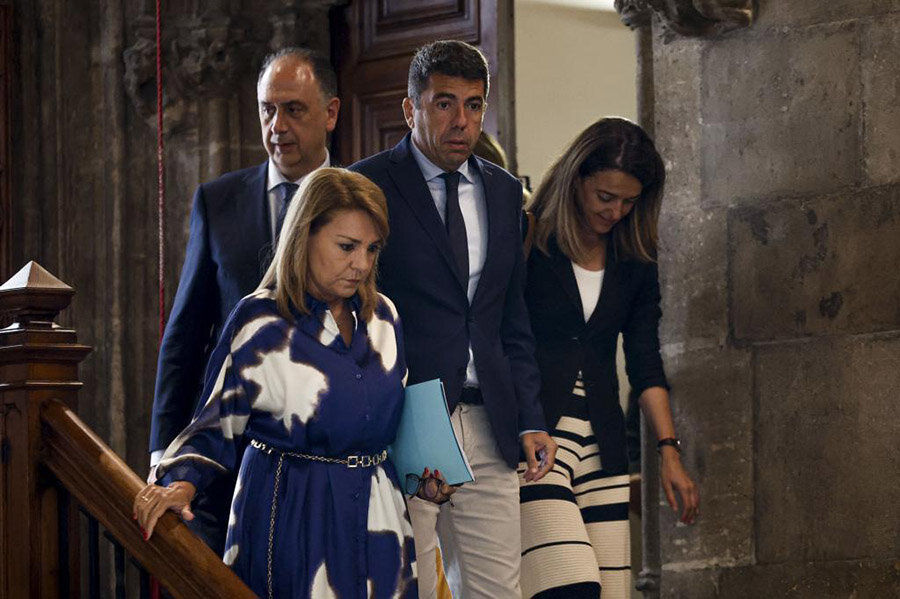Fighting Squatters in Valencia: New Measures and Legislative Proposals

Photo: El Mundo
Approximately 12% of Valencia’s public housing stock is currently occupied by squatters, according to El Mundo. This amounts to around 1,800 flats out of 15,000 properties intended for social use. The Valencian authorities are determined to change their approach to combating illegal housing occupation and have developed a comprehensive plan that tightens regulations for squatters.
The government of Valencia has proposed several measures. Among them is the launch of a support service for victims, accessible via the helpline 012. Property owners will have access to legal advice, psychological assistance, and support from social workers. This support will also be offered through 37 offices for victims of crime and 66 JustiProp legal centers operating within local municipalities.
Authorities will publish guidelines on preventing squatting and sign agreements with property administrators on how to act in such situations. The police will receive specific instructions as well. An online system will be introduced to verify property ownership, aiming to speed up the process of reclaiming occupied housing. Additionally, the government plans closer coordination with social services to assess potential vulnerabilities among squatters.
Alongside regional efforts, Valencia is pushing initiatives at the national level. The regional government has proposed repealing Spain’s current housing law, passed at the federal level. Valencian President Carlos Mazón stated that the existing legislation has driven tens of thousands of properties off the rental market due to “legal uncertainty for owners”, arguing that the law “provides more protection for squatters than for property owners.”
There are broader proposals to reform judicial proceedings, aiming to shorten timelines for eviction cases, simplify legal processes, and expand police powers in handling illegal occupations. Another proposal includes offering tax incentives to property owners involved in legal battles over squatted homes.
Carlos Mazón believes that the situation with squatting has worsened due to the inaction of the previous left-wing administration. He emphasized that combating illegal occupation is a priority for the Partido Popular and Vox coalition. The measures being implemented are intended to restore public confidence and reduce social anxiety. Valencia’s Regional Ministry of Housing added that efforts are already underway—for instance, several properties in Alicante Province have been successfully reclaimed for public use.
The scale of the problem is confirmed by official statistics: between 2010 and 2024, the number of complaints about property occupation in Spain rose from 2,702 to 16,426 annually—a more than sixfold increase. In Valencia alone, cases grew from 277 to 1,767. According to the regional government, these figures reflect a crisis of confidence in property rights and contribute to the withdrawal of rental supply from the market.
Compared to 2023, nationwide figures rose by 7.4%, according to Spain’s Ministry of the Interior. Catalonia remains the leader, with 7,009 complaints, including 5,077 in Barcelona Province. Andalusia, Valencia, Madrid, and the Canary Islands round out the top five regions affected. Experts estimate that the total number of occupied properties in Spain could reach as many as 80,000. Many owners choose not to report squatters to law enforcement, fearing lengthy legal battles. Alternative methods are widespread, including paying squatters to leave voluntarily or engaging private firms to resolve the issue.
In November 2024, Spain introduced legislative changes intended to accelerate eviction processes. However, these do not apply to so-called “inqui-ocupas” (tenant-squatters), whose cases are classified as fraud and can drag on for years.
In practice, courts in some regions have begun taking a tougher stance. In Barcelona, courts have allowed utilities to be cut off in occupied flats, while in Girona, courts have approved evictions within 24 hours. However, such decisions remain rare.
Read also:
Squatters in Spain: How the Mayor of Badalona Evicted an Occupant
Short-Term Rentals in Spain: 2025 Restrictions
Spain Has Around 4 Million Empty Homes: Authorities Increase Tax Pressure
Spain Changes Migration Rules: Simplified Entry, New Schemes, and Legal Criticism
Valencia Reduces Property Transfer Tax: A Major Reform
Подсказки: Valencia, Spain, real estate, squatters, housing law, property rights, eviction, legislation, Carlos Mazón, Partido Popular, Vox








